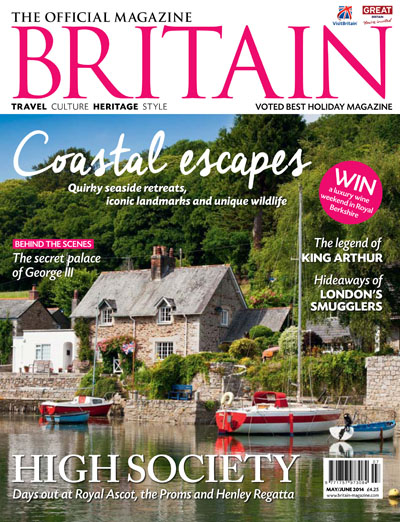BRITAIN magazine reader and ex-sergeant in the Special Boat Service Richard Holmes shares his experiences of the Second World War.

“In a recent copy of your magazine BRITAIN you published an article on Garrison Sergeant Major Mott, which caught my attention.
As an ex-guardsman I was very impressed by his accomplishments. It must have taken a great deal of determination and patience to have risen to such a high rank and he must have derived great satisfaction from organising events that depict British pomp and pageantry at its very best.
I would like to acquaint you and your readers with another group of guardsmen who preceded Sgt. Major Mott, whose army service followed a different path. Though they served in other regiments during World War II they nevertheless remained true to their parent regiment. I hope that you will accord this group equal time.
In January 1940 I enlisted in the Grenadiers and completed my basic training at Chelsea Barracks. I was a volunteer but I joined a squad composed mainly of conscripts. Having completed our basic training we were posted to Windsor and were doing field training there when Dunkirk reared its ugly head. While in Windsor I stood guard several times at the castle.
In June 1940 we returned to London, Wellington Barracks. About this time I became bored with the routine and suffered various punishments (deserved) for my lack of enthusiasm. When Winston Churchill urged army authorities to form an attacking force the Grenadiers dispensed with my services and I became a member of No. 2 Troop #8 Commando. It was a choice that I never regretted.
After training on the east coast of Essex we moved to Scotland to practise landings from Assault Landing Craft. Early in 1941 we set sail and five weeks later we arrived in Suez after circumnavigating the Cape of Good Hope. We believed that we had been transported to the Middle East for a specific purpose, which did not materialise.
I contracted typhoid and was hospitalised for several weeks. Upon my release I was shipped to Crete to defend the island from German invasion forces. We were evacuated after a short time; our vessel was subjected to dive bomber attacks for about an hour.
After a short respite I found myself in Syria opposing the Vichy French forces. Back in the Middle East I was attached to a signals unit in Cairo for several months. In June 1942 I volunteered and was accepted for the Special Air Service Regiment.
My introduction to this newly-formed regiment was an eye-opener. While doing my basic training a convoy of vehicles which had just conducted a series of raids up the Western Desert entered camp. All had beards of some sort and were dressed in a variety of mismatched clothes, including headgear. I was informed that this group had destroyed at least 20 enemy aircraft as well as a number of other targets. The nucleus were members of #8 Commando, mainly guardsmen. In fact the first four Regimental Sergeant Majors of the SAS were all guardsmen.
I was posted to the amphibious arm of the unit – the Special Boat Service – which was undergoing boat training in Beirut. I returned to Palestine in the spring of 1943 and in July I was designated to participate in a raid on the island of Crete and the group of which I was a member destroyed a fuel dump. In September about 30 of us disarmed the Italian garrisons of the Dodecanese Islands. In November the Germans retaliated and we were forced to evacuate to the Turkish mainland. After being interned for several weeks we were stuffed into several cattle cars and I was transported to Syria.
In February 1944 we found ourselves living aboard a small Greek boat moored in Turkish waters. From this base we attacked many of the islands of the Dodecanese, the Cyclades and the Sporades groups. We created such fear among the German garrisons that the German High Command decreed that any SBS prisoners were to be ‘vigorously interrogated and executed’. Several of my friends suffered that fate.
In the autumn of 1944 we were shipped to Italy and began a series of raids on targets along the Dalmatian coast. I was a member of a group that destroyed a bridge near Mostar and until the end of the war in Europe we attacked targets in Yugoslavia.
One of our number was awarded the Victoria Cross, posthumously, for an attack on German fortifications near lake Comacchio in northern Yugoslavia.

In all of these actions Guardsmen acquitted themselves well. No. 2 Troop #8 Commando consisted of 40 Grenadiers. Throughout the war I was able to maintain contact with about 20 of them and the decorations that they collected attested to their bravery: two Military Crosses, two Distinguished Conduct Medals, two British Empire Medals, seven Military Medals.”
Yours sincerely,
Richard (Dick) Holmes
MM,BA
Ex-sergeant S Squadron, Special Boat Service
|
|||||||||||||||||








 © 2024
© 2024